Ear Pain .
Introduction
Ear pain, medically known as otalgia, is a common and discomforting condition that affects people of all ages. It can range from a mild, nagging ache to severe, debilitating pain. Understanding the causes, symptoms, and treatment options for ear pain is essential for anyone seeking relief and a higher quality of life. In this comprehensive article, we will delve into the world of ear pain, exploring its symptoms, potential causes, diagnostic methods, various treatment options, and effective prevention strategies.

Symptoms of Ear Pain
Ear pain can manifest in various ways, and its symptoms may vary depending on the underlying cause. Recognizing these symptoms is the first step in seeking appropriate treatment.
- Sharp or Dull Pain: Ear pain often presents as a sharp, stabbing sensation, or a dull, throbbing ache in or around the ear. The intensity can range from mild discomfort to severe, incapacitating pain.
- Itching or Irritation: Some individuals may experience itching or irritation within the ear canal, which can contribute to a sense of discomfort.
- Earache with Fever: In cases of ear infections, such as otitis media or otitis externa, ear pain is often accompanied by a fever. This fever is a sign of the body’s response to the infection.
- Discharge from the Ear: Pus or fluid drainage from the ear is a common symptom of ear infections. The presence of discharge may indicate an infection and is often accompanied by a foul odor.
- Hearing Loss: Ear pain can be associated with temporary or, in some cases, permanent hearing loss. This occurs due to the effects of the condition on the ear’s intricate structures.
- Tinnitus (Ringing in the Ear): Some individuals with ear pain may also experience tinnitus, characterized by a persistent ringing or buzzing sound in the ear.
- Vertigo or Dizziness: In certain conditions, like Meniere’s disease, ear pain can be accompanied by severe vertigo or dizziness, leading to balance and coordination issues.
Causes of Ear Pain
Understanding the root causes of ear pain is crucial for appropriate diagnosis and treatment. There are various factors that can lead to this discomfort:
A. Infections
- Otitis Media: This is a common middle ear infection, often affecting children. It causes inflammation, pain, and sometimes fluid buildup behind the eardrum.
- Otitis Externa (Swimmer’s Ear): This is an infection of the ear canal, typically caused by moisture retention and bacterial growth. It can be quite painful.
B. Trauma and Injury
- Foreign Objects: Inserting foreign objects into the ear canal, like cotton swabs or small toys, can result in injury and ear pain.
- Barotrauma: Sudden changes in pressure, such as during air travel or diving, can cause barotrauma, leading to ear pain.
C. Allergies: Allergic reactions can cause inflammation in the ear, leading to pain and itching. Identifying and managing allergies is crucial.
D. Earwax Blockage: Excessive earwax can accumulate and block the ear canal, causing discomfort and sometimes even hearing loss.
E. Sinusitis: Infections and inflammation of the sinuses can create pressure changes in the ear, leading to ear pain.
F. Dental Issues: Problems with the teeth and jaw, such as impacted wisdom teeth or dental abscesses, can radiate pain to the ear.
G. Temporomandibular Joint (TMJ) Disorders: Dysfunction of the TMJ, which connects the jaw to the skull, can lead to ear pain and jaw discomfort.
H. Eustachian Tube Dysfunction: The Eustachian tubes help equalize pressure in the ear. Dysfunction can lead to ear pain and discomfort.
I. Meniere’s Disease: This chronic inner ear disorder causes recurring episodes of ear pain, vertigo, tinnitus, and hearing loss.

Diagnosis of Ear Pain
To effectively treat ear pain, healthcare professionals follow a systematic diagnostic process:
A. Medical History: Gathering information about the patient’s symptoms, medical history, and recent activities can provide important clues to the underlying cause.
B. Physical Examination: A physical examination of the ear, nose, and throat allows the doctor to identify visible issues like earwax blockage or signs of infection.
C. Audiometry and Hearing Tests: If hearing loss is a concern, audiometry and other hearing tests may be conducted to assess the extent of the problem.
D. Imaging Studies: In some cases, imaging studies such as X-rays, CT scans, or MRIs may be required to get a detailed look at the ear’s internal structures.
E. Ear Endoscopy: An ear endoscopy involves the use of a tiny camera to visualize the inside of the ear canal, aiding in the diagnosis of ear conditions.
F. Laboratory Tests: If infection is suspected, samples of ear discharge may be analyzed in a laboratory to identify the specific pathogen responsible.
Treatment of Ear Pain
The choice of treatment for ear pain depends on the underlying cause. Effective management typically involves addressing the cause and alleviating the pain:
A. Management of Underlying Causes
- Antibiotics for Infections: Bacterial ear infections are treated with antibiotics, which may be administered orally or in the form of ear drops.
- Removal of Foreign Objects: Foreign objects lodged in the ear require careful and professional removal to prevent further injury.
- Allergy Management: Allergies can be managed with antihistamines, decongestants, and avoiding allergens.
- Earwax Removal: Earwax blockage can be gently removed by a healthcare professional using special tools or irrigation.
- Sinusitis Treatment: Treating sinus infections with medications, such as antibiotics or decongestants, can relieve ear pain.
- Dental Procedures: Dental issues contributing to ear pain, such as wisdom tooth extraction or root canal treatment, may be necessary.
B. Pain Relief
- Over-the-Counter Pain Relievers: Non-prescription pain relievers like ibuprofen or acetaminophen can provide temporary relief from ear pain.
- Prescription Medications: In cases of severe ear pain, a doctor may prescribe stronger pain medications or analgesic ear drops.
C. Home Remedies
- Warm Compress: Applying a warm compress to the affected ear can alleviate pain and promote comfort.
- Eardrops: Non-prescription eardrops can help soothe ear pain and reduce inflammation.
- Rest: Adequate rest and sleep can aid the body’s natural healing process.
D. Surgical Interventions
- Myringotomy: In cases of persistent ear infections with fluid buildup, a myringotomy may be performed to drain the middle ear.
- Tympanoplasty: This surgical procedure repairs the eardrum in cases of perforation or injury.
- Mastoidectomy: In severe infections that spread to the mastoid bone, a mastoidectomy may be necessary.
E. Lifestyle and Diet Changes
- In chronic conditions like Meniere’s disease, certain lifestyle and dietary modifications can help manage symptoms.

Prevention of Ear Pain
Preventing ear pain is often easier and more comfortable than
dealing with the discomfort and potential complications that can arise from ear-related issues. Here are some effective strategies for preventing ear pain:
A. Good Ear Hygiene: Proper ear hygiene is crucial to prevent earwax buildup, infections, and discomfort. Avoid inserting foreign objects into the ear canal and clean the ears gently with a washcloth.
B. Avoiding Harmful Habits: Refrain from activities that can contribute to ear trauma, such as inserting cotton swabs or sharp objects into the ears. Be cautious during air travel or diving to prevent barotrauma.
C. Allergy Management: Identify and manage allergies by avoiding allergens that trigger ear inflammation. Consult with an allergist for comprehensive allergy testing and personalized treatment plans.
D. Ear Protection in Noisy Environments: Excessive noise exposure can lead to hearing loss and discomfort. Use hearing protection, like earplugs or earmuffs, in loud settings, such as concerts, construction sites, or industrial workplaces.
E. Proper Swimmer’s Ear Prevention: To prevent otitis externa or “swimmer’s ear,” ensure your ears are dry after swimming or showering. Use earplugs or a swim cap to keep water out of the ear canal.
F. Treating Sinus and Upper Respiratory Infections Promptly: Timely treatment of sinusitis and upper respiratory infections can prevent the spread of infection to the ears. Practice good hygiene and seek medical attention when needed.
G. Regular Dental Checkups: Maintain good oral health and attend regular dental checkups to prevent dental issues from affecting the ears. Promptly address dental problems like impacted wisdom teeth.
H. TMJ Disorder Management: If you experience jaw pain or TMJ-related symptoms, seek professional dental or medical advice to manage the condition and prevent referred ear pain.
Conclusion
Ear pain is a prevalent and often debilitating condition that can have a profound impact on one’s quality of life. Recognizing the symptoms, understanding the potential causes, and seeking appropriate diagnosis and treatment are essential steps toward finding relief and preventing complications.
The variety of causes for ear pain, including infections, trauma, allergies, and underlying medical conditions, necessitates a comprehensive approach to diagnosis and treatment. Healthcare professionals play a vital role in accurately identifying the cause of ear pain and providing appropriate care.
In many cases, managing the underlying cause of ear pain is the key to alleviating discomfort. Antibiotics, pain relievers, and surgical procedures are valuable tools in the medical arsenal against ear pain.
Home remedies and lifestyle changes can complement medical treatments and enhance overall comfort. A warm compress, over-the-counter eardrops, and rest are simple yet effective methods for relieving minor ear pain.
Prevention is equally important, as it can spare individuals from experiencing ear pain in the first place. Practicing good ear hygiene, avoiding harmful habits, and taking measures to protect the ears in noisy environments are proactive steps to safeguard ear health.
In closing, ear pain is a multifaceted condition that can have various causes, symptoms, and treatment options. By understanding the complexities of ear pain and taking a proactive approach to prevention and management, individuals can experience a higher quality of life with minimal ear-related discomfort. If you or someone you know is experiencing ear pain, consult with a healthcare professional to receive personalized care and regain ear health and well-being.
FAQs about Ear Pain
Is ear pain always a sign of infection?
Not necessarily. Ear pain can result from various factors, including infections, earwax blockage, or even dental problems.
2. How can I prevent ear pain when flying?
To prevent ear pain during flights, try swallowing, yawning, or chewing gum to equalize the pressure in your ears.
3. Are there any natural remedies for ear pain?
Warm olive oil drops or using a warm compress can offer relief from mild ear pain.
4. Can ear pain be a symptom of a more serious condition?
Yes, in some cases, ear pain can be a symptom of a more serious condition like a tumor, so it’s crucial to seek medical attention for persistent or severe pain.
5. When should I consult a doctor for ear pain?
Consult a doctor if your ear pain is severe, lasts more than a few days, is accompanied by a high fever, or if you notice any drainage from the ear.
Important Reminder:
The information provided on “health life ai” is intended for informational purposes only. While we have made efforts to ensure the accuracy and authenticity of the information presented, we cannot guarantee its absolute correctness or completeness. Before applying any of the strategies or tips, please consult a professional medical adviser.


